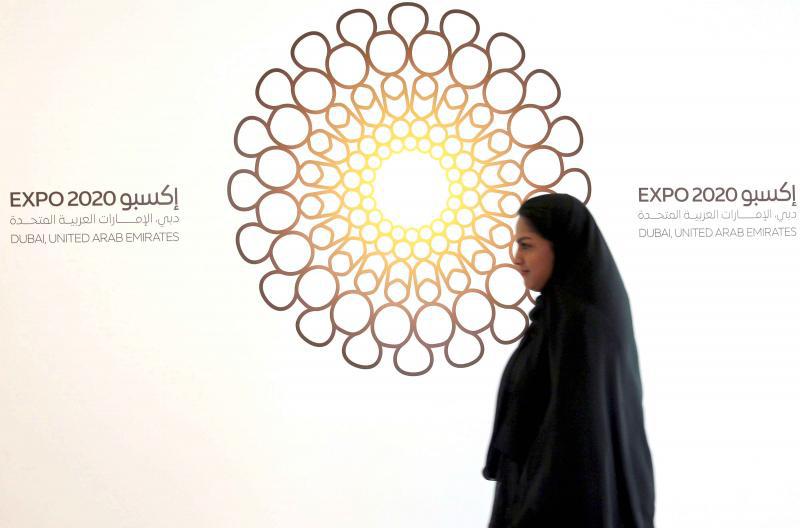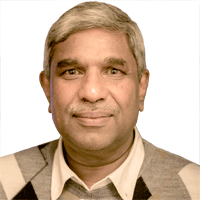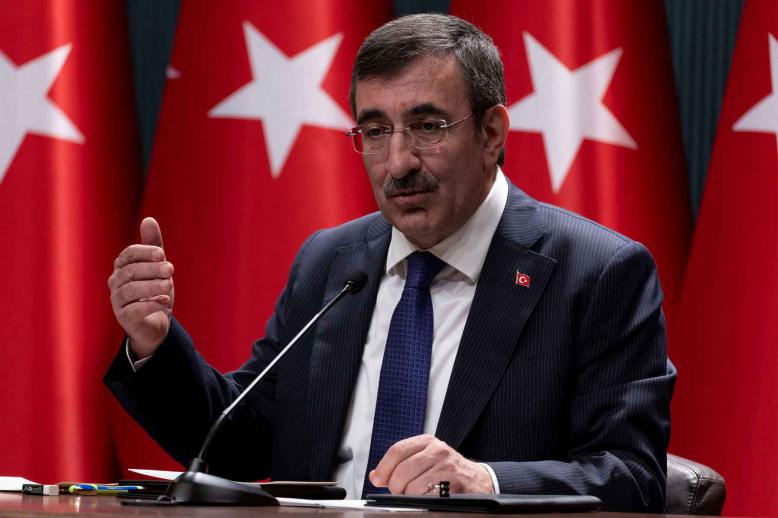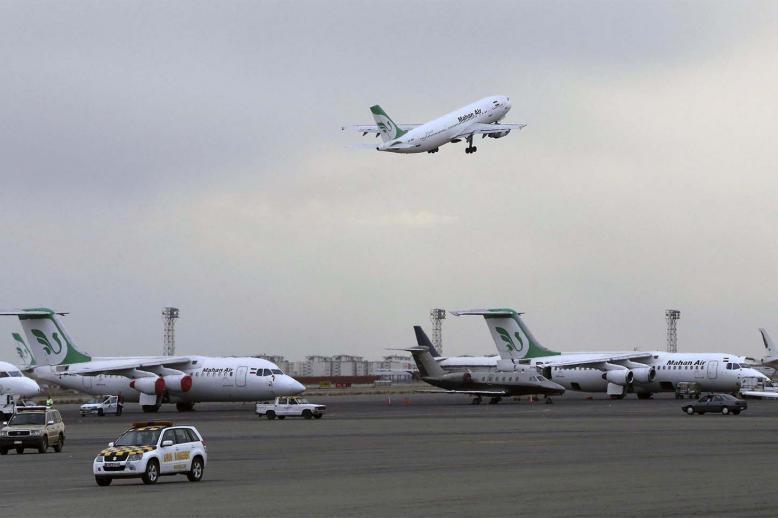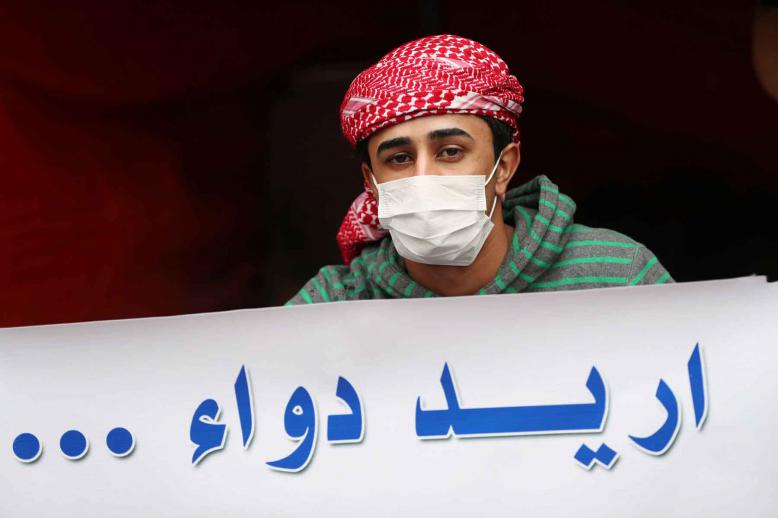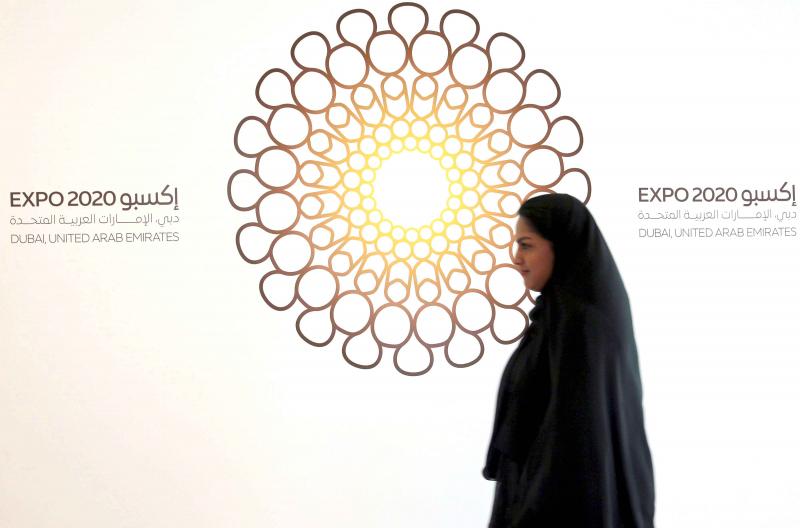Expo 2020 Dubai on track, organisers moving fast
DUBAI - Eyes are all set on Expo 2020 Dubai, which is being prepared to attract millions of visitors over a 6-month period of spectacle and global celebration.
The event, with its theme of “Connecting Minds, Creating the Future,” is centred on innovations to build a sustainable future. Displays will be installed in three thematic districts that explore the Expo’s subthemes of “Opportunity,” “Mobility” and “Sustainability” and include 192 country pavilions.
The event is expected to attract 25 million visitors from October 20, 2020, to April 10, 2021.
A visit to the Expo site, covering 4.4 sq.km, shows that, after 100 million working hours with 30,000 workers on site, the venue is taking shape with the construction of the petal-shaped thematic districts complete.
Master planner HOK, a US engineering firm, said the three districts emanate from a central plaza called Al Wasl, the historic Arab name for Dubai and meaning “the connection.” The plaza was inspired by the layout of a traditional Arabic souk.
The thematic districts — designed by British company Hopkins Architects — evoke old Dubai, with facades resembling traditional Emirati wind towers and walkways lined with flora indigenous to the United Arab Emirates. They incorporate a host of innovative features, including smart shading, solar cells and moisture-capturing mechanisms, as well as an enormous basement under each district, which will be used for logistics during the event and parking post-event.
Built by the United Arab Emirates’ Al Futtaim Carillion and already landscaped with water and shading features, the districts are ready for fit-out. They form the largest built-up area of the site and include 86 buildings that will house dozens of country pavilions, food and beverage outlets, retail, performance spaces and leisure areas.
The Al Wasl Plaza is set to be the next iconic structure of Dubai, with its massive domed trellis, which will act as a huge 360-degree projection screen. It is scheduled for completion by the end of June.
Designed by architect Santiago Calatrava in the shape of a falcon in flight, the UAE Pavilion will be a major attraction. It depicts the history of the Emirates as a connected global hub, along the vision of its leaders to create a peaceful and progressive society with ambitious plans.
Dubai Expo has the largest number of participating countries in the 168-year history of world expos. Out of the 192 participating countries, 81 will build their own pavilion; the rest will lease Expo-built pavilions.
Officials at the Expo site said they expect construction to be completed this year.
Ahmed al-Khatib, chief development and delivery officer, said: “This is the year of delivery and the completion of the three thematic districts is a major construction landmark to be celebrated as we prepare to welcome the world in less than 520 days.”
Khatib said, as of May, 67.5% of the construction work had been completed.
“All Expo 2020-built structures are designed to achieve at least LEED Gold certification, the globally recognised standard of sustainable architecture, which is in line with Expo’s commitment to leaving a sustainable, meaningful legacy,” said Khatib.
More than 100 million working hours have gone into developing the site, including the completion of shell and core works for the Opportunity, Mobility and Sustainability districts.
The Dubai Metro Route 2020 extension, which will link the Expo to the rest of the emirate, the three electric substations that will power the site and other key water, sewage and telecommunications infrastructure, including the 2.2km road network, have been completed.
Reem Al Hashimy, minister of state for International Cooperation and director-general, Expo 2020 Dubai, said: “The completion of the thematic districts is a significant milestone in our journey towards delivering an exceptional Expo.”
A single-day adult (aged 18 and over) ticket will cost $33 and a 3-day pass will cost $71 and can be used on any three days of the 173-day event.
Children aged 5 and younger can enter for free, can people aged 65 and older, while children aged 6 to 17 and students get a 50% discount.
On schedule are 60 live daily shows, future-shaping technologies, performances by world-famous artists, parades, cutting-edge innovations and architecture, special celebrations and more than 200 food and beverage outlets offering more than 50 cuisines.
The Expo is predicted to add the equivalent of 1.5% to the United Arab Emirates’ GDP, boosting its economy by $33.4 billion and supporting 905,200 job-years from 2013-31.
This article was originally published in The Arab Weekly.


